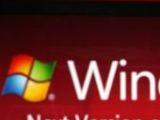 Sometime toward the end of 2010, I don’t remember exactly when, I was chatting with a few Microsoft employees in one of the company’s headquarters, and I remember saying what a great idea it would be if customers could rent Windows 7 computers instead of buying them.
Sometime toward the end of 2010, I don’t remember exactly when, I was chatting with a few Microsoft employees in one of the company’s headquarters, and I remember saying what a great idea it would be if customers could rent Windows 7 computers instead of buying them. Everybody around the table agreed that the concept could work for both end users and businesses. Granted, the employees I talked with weren’t top company executives, but I don’t doubt even for a second that subscription Windows machines have been at least considered by the software giant’s top dogs.
Meanwhile, Google will start selling the first subscription based Chromebooks in approximately a month.
For business customers the Mountain View-based search giant will offer netbooks powered by Chrome OS at $28 per month, including a web-based management console, support, and the guarantee that the hardware will be replaced at the end of the refresh cycle, some odd there years.
Considering the explosion of the IT-as-a-service trend the move makes perfect sense. What doesn’t make sense is Microsoft not even piloting such a business model for its volume customers, especially since it could simply expand Software Assurance licenses to also include hardware, as an added benefit.
As far as I’m concerned, there’s another of Google’s moves that the Redmond company should “use as inspiration,” namely branded form factors.
Microsoft relies heavily on its OEM partners to sell Windows, especially since over 80% of the operating system’s revenue comes from copies of the platform preinstalled on new machines from original equipment manufacturers.
Still, if the success of iOS and OS X devices is any indication, the software giant’s partners are not really all that capable of tackling Apple.
Google showed the world that it’s very much possible to work together with OEMs but also provide your own product on top. Microsoft should also expose this strategy.
Windows 8 offers an excellent opportunity as far as I’m concerned to see some Microsoft branded next generation form factors hot store shelves.
Thinking back to the Zune devices, it’s clear that success is relative, but it’s also a measure of the company’s commitment and investment.
Microsoft touts choice as the core philosophy of the Windows device ecosystem. Well, it’s time for the company to also allow customers the option to choose Microsoft branded devices.
The software giant can reserve the privilege of building products tailored especially to the consumer base of rivals Apple and Google. A tablet, a PC, a laptop, a netbook and a smartphone, all running Windows 8 and designed specifically to win back the users that strayed.
Wouldn’t this be a better idea than waiting for OEM partners to stop the growth of Google and Apple on the emerging form factors market?
Do You Like it then don`t forget to write comment.

0 comments:
Post a Comment